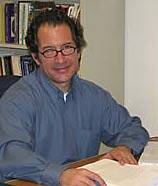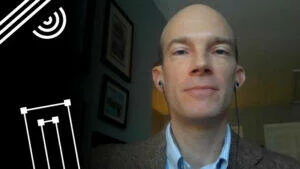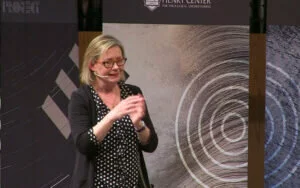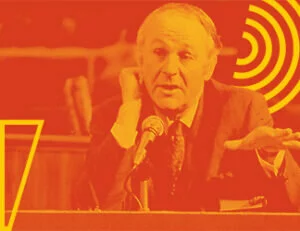“It is indeed a sorry statement on the present state of the Christian church that economic opinions … are more definitive of unity than the spiritual bond … of Jesus Christ.”1
So says Jordan Ballor with prophet-like pathos. While most of us cannot give an adequate or well-thought understanding of what we mean when we say “economics,” few of us are without opinion on the subject. Lacking theoretical precision of the trained economist, we can nonetheless hoist a whole conceptual apparatus of the word’s connotations … many of which are self-contradictory — Greed or energy? Exploitation or liberty? Creativity or homogeneity? And both sides, it would seem, have biblical precedent for their respective positions.
“What has Jerusalem, the spiritual city, to do with Wall Street?”Those critical of our modern economic systems tend to look to the prophetic canon and especially the minor prophets, whose critical voices often denounce luxury housing, greed, and all-around neglect (if not intentional exploitation) of those in need.
Those more amenable to our contemporary, Western financial markets are more likely to turn to passages like the parable of the faithful servant, emphasizing the goodness of productive, human energy, and the way that an entrepreneurial spirit may be an active force for good in the world.
Each of these positions, even if only implicitly, share the conviction that economics and theology ought not be severed. But what exactly is economics? And how does it relate to theology, if at all? What, we might say, has Jerusalem, the spiritual city, to do with Wall Street, our material city?
Clarifying a conversation

Jordan Ballor, Acton Institute
This question is pertinent not only for those vocationally positioned in theological situations — I think chiefly of pastors and theology professors — but also those positioned in economic situations — whether practioners involved in business or professors of economics, politics, etc. And it is with this meta-level question and this audience in mind that we are pleased to announce a forthcoming lecture.
Jordan Ballor, a Research Fellow at the Acton Institute, will be delivering a Trinity Symposium lecture on the evening of Tuesday, April 15. His talk is entitled, “A Match Made in Heaven: Why Theology and Economics Need Each Other.” Here’s a blurb about what he’ll cover:
Theologians have often dismissed economics as inherently heretical or, at the very least, highly suspect. Economists have often forgotten the humble beginnings of their discipline and allowed their reach to exceed their moral grasp. It is incumbent upon both disciplines to renew their commitment to one another for their mutual benefit. This lecture will explore the background of the current schism, the dynamics of its contemporary expression, and particular promising points of rapprochement going forward. Theology and economics have insights to offer one another, and in fact, in a deep and meaningful way, need one another to fulfill their respective tasks.

Stephen Long, Marquette University
Stephen Long, professor of theology as Marquette University and published author on the subject of theology and economics (see his Divine Economy), will also be giving a formal response.
The event will be in the Kantzer Lecture Hall from 7:00-8:00 p.m., with a Q&A to follow. It will also be live-streamed at stream.tiu.edu. We hope that you’ll be able to join us in this conversation, as we collectively strive to affirm the unity of the bond of Christ while thinking carefully and critically about the influences around us today, how to respond rightly to them, and how to live well within them.
We are grateful to the Kern Family Foundation and its Oikonomia network, which provided the financial support to make this lecture possible.
1 Jordan Ballor, Ecumenical Babel: Confusing Economic Ideology and the Church’s Social Witness (Grand Rapids: Christian’s Library Press, 2010): xvi.







Comments
Be the first one to make a comment!